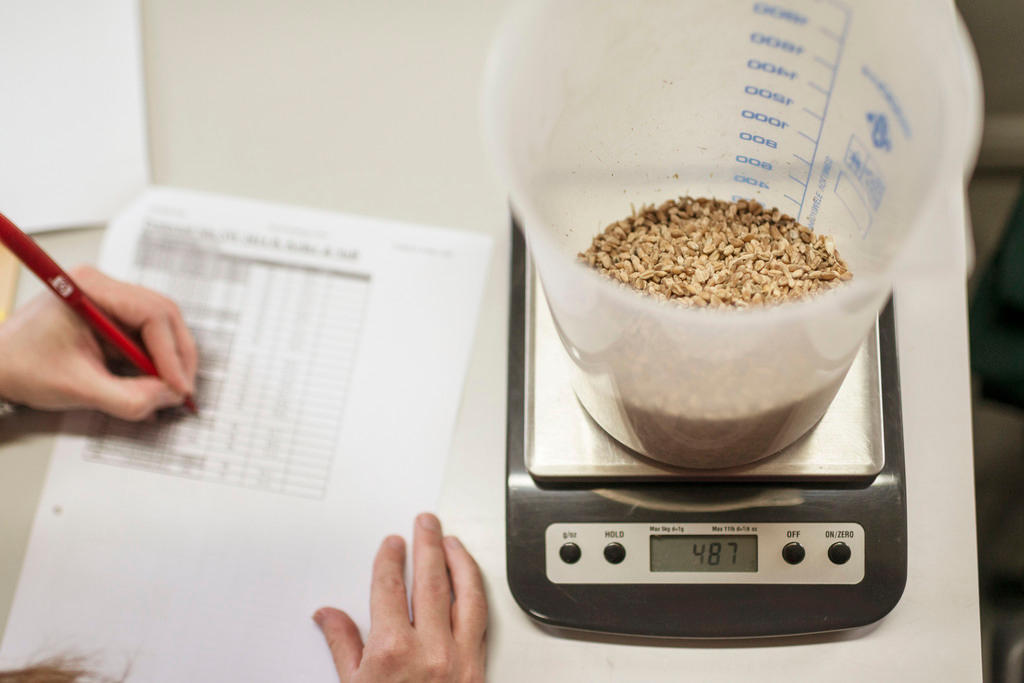
Ruling on gene editing causes stir in Switzerland

Reaction in Switzerland to a key ruling by a top European court restricting plant gene editing has been mixed.
The verdict by the Court of Justice (ECJ)External link in Luxembourg is seen as victory for environmentalists at the expense of the biotech industry. It comes as the Swiss government is due to decide on the use of genome editing – a relatively new form of bio-technology breeding technique.
Under the new ruling, gene editing is subject to the European Union’s strict safety regulations for genetically modified organisms (GMOs)
Business group ScienceindustriesExternal link slammed the ruling calling it “a negative signal for research and development in Europe”. The group represents companies from the Swiss chemical, pharma and biotech industry.
It urged the Swiss government to factor scientific evidence and the great potential of the genome editing technique to develop crop varieties resistant to pest while producing large yields under adverse climatic conditions.
Scienceindustries also noted that a growing number of countries, including the United States, have adopted a liberal policy on gene editing.
GMO moratorium
For its part, Greenpeace SwitzerlandExternal link has welcomed Wednesday’s ECJ court decision.
“Switzerland has to follow suit and subject the new techniques subject to the law on GMO,” it says.
The environmental group is convinced that “Swiss farmers and consumers want GM, neither in the fields nor on the plates.”
The Swiss parliament last year extended a moratorium on traditional genetic engineering methods until 2021.
However, experts say there is a legal grey area about the use of organisms obtained by so called mutagenesis – the precise replacement of one DNA sequence with another.

In compliance with the JTI standards
More: SWI swissinfo.ch certified by the Journalism Trust Initiative






























You can find an overview of ongoing debates with our journalists here . Please join us!
If you want to start a conversation about a topic raised in this article or want to report factual errors, email us at english@swissinfo.ch.